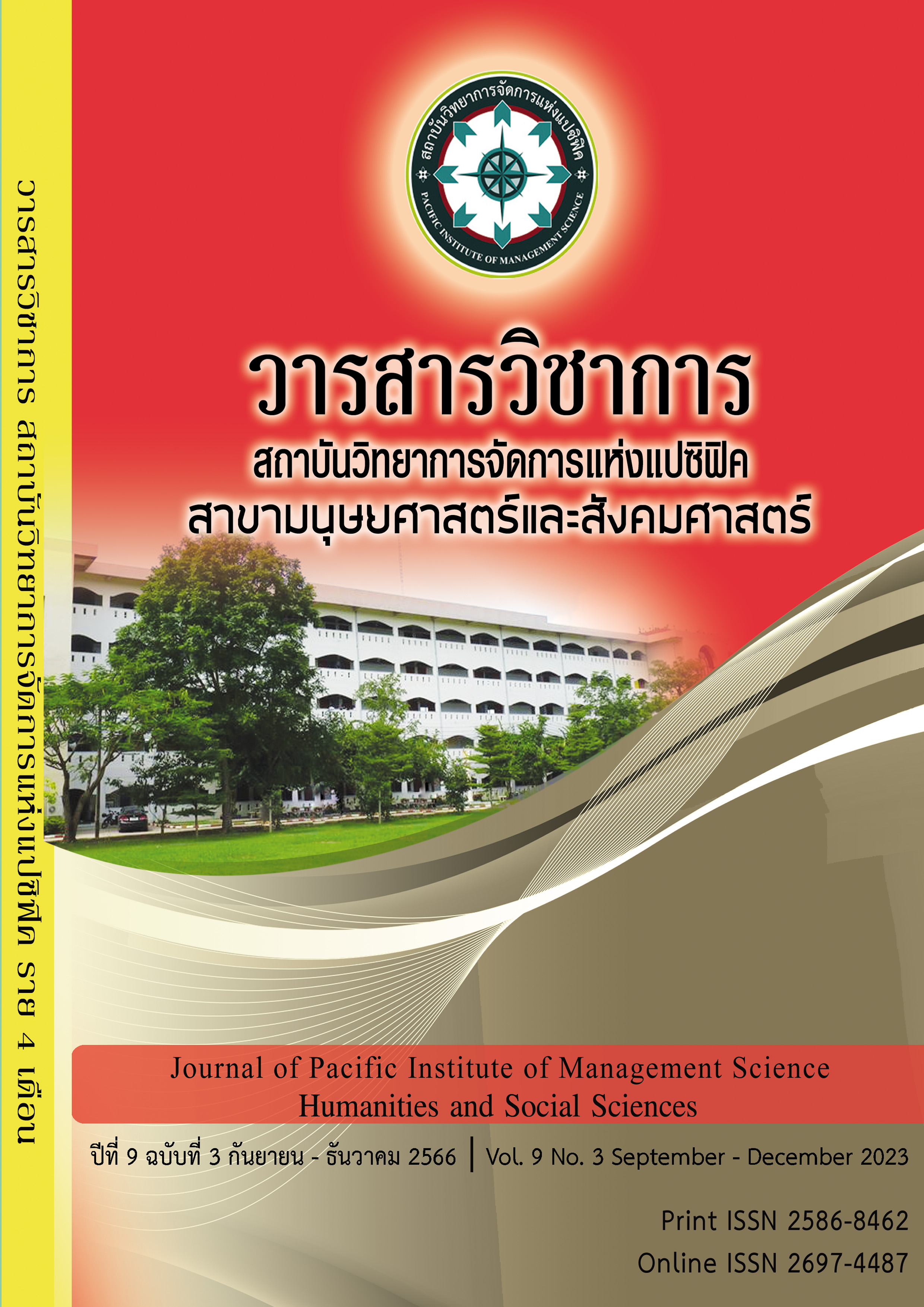Research on Legal Protection of Personal Information in Artificial Intelligence Environment
คำสำคัญ:
Artificial Intelligence Environment, Personal Information, Legal Protectionบทคัดย่อ
The research idea and content of this paper is based on the background of big data era. First, it is to study the definition of personal information in the artificial intelligence environment and the difference between personal information and privacy; Then it analyzes the current situation and new challenges of personal information protection in the artificial intelligence environment, and then analyzes the reasons for information leakage; The second is to study the current situation of personal information protection in some countries or regions outside the region and its enlightenment to China; Finally, it puts forward suggestions on personal information protection in China under the artificial intelligence environment. The overall research idea is problem-oriented, that is, finding problems and putting forward countermeasures. Based on the introduction information and the above questions, this study aims to find the answers to the following three questions: 1 How to protect personal information in AI environment? 2. How is the legal protection of personal information conceived and practiced in the AI environment? 3. What are the obstacles to the legal protection of personal information in the AI environment? On the basis of theoretical analysis, this article discusses the impact of perceived risk, willingness to protect, and perceived response on personal information protection behavior. Based on data analysis and hypothesis testing, the theoretical hypothesis is tested, and the research finds that personal information perceived risk has a significant impact on protection behavior; The perceived risk of personal information has a significant impact on the willingness to protect; The willingness to protect personal information has a significant impact on the protection behavior; Willingness to protect plays an intermediary role between perceived risk and protective behavior; Perceived response plays a regulatory role between perceived risk and protective behavior.
เอกสารอ้างอิง
Cheng Xiao (2020). On the Nature of Personal Information Rights and Interests in China's Civil Code. Politics and Law, 6(08), 2-14.
Cheng Xiao (2016). On civil liability for infringement of personal Information. Hainan Journal (Philosophy and Social Science edition), 42(02), 39-47.
Gao Zhiming (2016). The Attribute and Constitution of Personal Information Right. Journal of Qinghai Normal University (Philosophy and Social Science Edition), 12(05), 2-13.
Hong HAilin (2016). The legislative concept of personal information protection is explored between information protection and information circulation. Hebei Law School, 3(01), 108-113.
He Nurturing (2016). Personal information protection of consumers in online transactions. China Circulation Economy, 8(03), 38-49.
J. Lee (2020). “Access to finance for artificial intelligence regulation in the financial services industry,” European Business Organization Law Review, vol. 21, no. 4, 731–757.
Qin Qian (2021). On the right basis of personal Information protection. Journal of Chongqing University, 27(09), 1-13.
Qi Aimin (2019). Personal Information Protection Law of the People's Republic of China. Hebei Law School, 37(01), 33-45.
Shi Bin (2020). Path selection and reconstruction of APP personal Information protection. People's Forum, 3(15), 146-147.
The legislative path of civil confirmation of personal information right -- comment on article 111 of General Principles of Civil Law. Journal of North China University (Social Science Edition), 20(06), 65-73.
Wang Liming (2021). Personal dignity: the primary value of personality right in civil Code. Contemporary Law, 35(01), 3-14.
Wang Liming (2016). On the legal protection of personal Information right -- The center is the division between personal information right and privacy right. Modern Law, 21(03), 38-47.
X. Cai, J. Wang, S. Zhong, K. Shi, & Y. Tang (2020). “Fuzzy quantized sampled-data control for extended dissipative analysis of T–S fuzzy system and its application to WPGSs,” Journal of the Franklin Institute, vol. 358, no. 2. 1350–1375.
X. Cai, K. Shi, S. Zhong, & X. Pang (2021). “Dissipative sampled-data control for high-speed train systems with quantized measurements,” IEEE Transactions on Intelligent Transportation Systems, no. 99. 1–12.
X. Zheng & Z. Cai (2020). “Privacy-preserved data sharing towards multiple parties in industrial iots,” IEEE Journal on Selected Areas in Communications, vol. 38, no. 5, 968–979.
Y. Zou, W. He, L. Zhang, J. Ni, & Q. Chen (2019). “Research on privacy protection of large-scale network data aggregation process,” International Journal of Wireless Information Networks, vol. 26, no. 3, pp. 193–200.
Z. P. Cai, Z. B. He, X. Guan, & Y. S. Li (2018). “Collective data-sanitization for preventing sensitive information inference attacks in social networks,” IEEE Transactions on Dependable and Secure Computing, vol. 15, no. 4, pp. 577–590.
Zhang Xinbao (2015). From Privacy to Personal Information: Theory and Institutional Arrangements for benefit Remeasurement. Chinese Law Journal, 4(03), 38-59.
Zhou Hanhua (2016). Exploring the way of personal data governance with incentive compatibility -- the legislative direction of Personal Information Protection Law in China. Law Studies, 40(02), 3-23.
Zhang Li 'an, Han Xuzhi (2016). Private law attribute of personal information right in big data era. Law Forum, 31(03), 119-129.
ดาวน์โหลด
เผยแพร่แล้ว
ฉบับ
ประเภทบทความ
สัญญาอนุญาต
ลิขสิทธิ์ (c) 2023 สถาบันวิทยาการจัดการแห่งแปซิฟิค

อนุญาตภายใต้เงื่อนไข Creative Commons Attribution-NonCommercial-NoDerivatives 4.0 International License.
บทความที่ได้รับการตีพิมพ์เป็นลิขสิทธิ์ของ สถาบันวิทยาการจัดการแห่งแปซิฟิค
ข้อความที่ปรากฏในบทความแต่ละเรื่องในวารสารวิชาการเล่มนี้เป็นความคิดเห็นส่วนตัวของผู้เขียนแต่ละท่านไม่เกี่ยวข้องกับสถาบันวิทยาการจัดการแห่งแปซิฟิค และคณาจารย์ท่านอื่นๆในสถาบันฯ แต่อย่างใด ความรับผิดชอบองค์ประกอบทั้งหมดของบทความแต่ละเรื่องเป็นของผู้เขียนแต่ละท่าน หากมีความผิดพลาดใดๆ ผู้เขียนแต่ละท่านจะรับผิดชอบบทความของตนเองแต่ผู้เดียว







